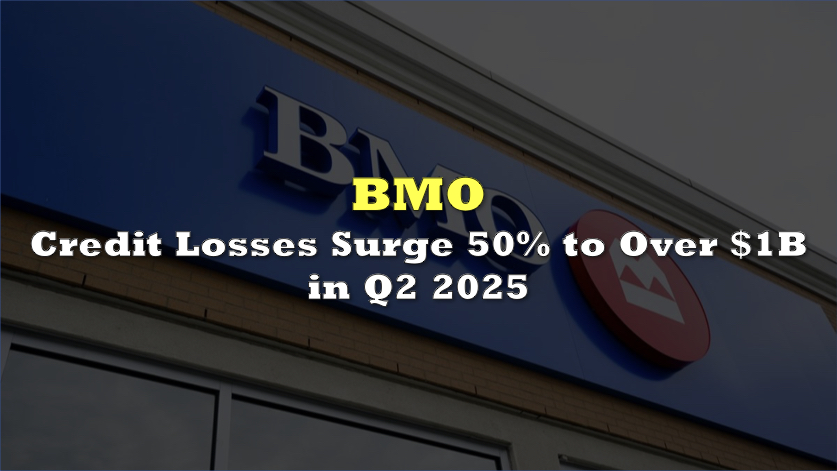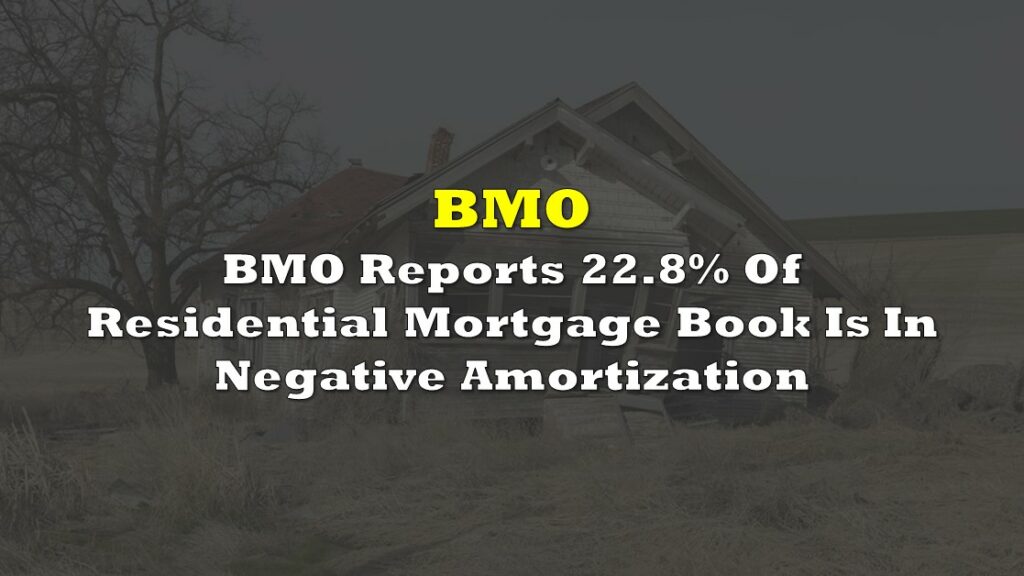Bank of Montreal (TSX: BMO) shares fell by more than 7% on Wednesday after the Canadian lender reported quarterly earnings that missed analysts’ expectations, primarily due to higher loan loss provisions and underperformance in its U.S. segment. The bank’s shares reacted negatively as investors digested the impact of ongoing economic challenges and competitive pressures.
BMO’s net income for the second quarter, which ended April 30, 2024, was $1.87 billion or $2.36 per diluted share, a significant increase from $1.03 billion or $1.26 per diluted share in the same period last year. However, on an adjusted basis, the bank’s profit of $2.59 per diluted share fell short of analysts’ estimates of $2.77 per share, according to LSEG Data & Analytics.
Revenue for the quarter totaled $7.97 billion, up from $7.79 billion a year earlier. Despite the revenue growth, higher provisions for credit losses, which amounted to $705 million, surpassed analysts’ forecast of $563.3 million.
BMO’s recent $16.3 billion acquisition of Bank of the West aimed to diversify its growth avenues amidst stiff competition in Canada. However, the U.S. segment’s performance has been less than stellar. Adjusted net income for the U.S. unit dropped by 24%, mainly due to lower net interest income—a result of a competitive deposit environment that has pressured margins on both sides of the border.
CEO Darryl White noted the challenging economic landscape, saying, “Consumers and businesses continue to be impacted by prolonged higher interest rates and a slowing economy.” White expressed cautious optimism about future net interest margins, expecting the impact to be “more modest” in the coming quarters.
While the U.S. operations faced headwinds, BMO’s capital markets segment reported a strong performance, with net income rising by 23% driven by increased interest rate trading and debt and equity issuance activities. The Canadian unit also showed resilience, with a 7% increase in net income.
Despite the challenges, BMO raised its quarterly dividend to $1.55 per share, up from $1.51, reflecting confidence in its financial stability. This move aligns with BMO’s strategy to reward shareholders while maintaining robust capital reserves. The bank’s Common Equity Tier 1 (CET1) ratio improved to 13.1%, up from 12.8% at the end of the previous quarter, indicating strong capital positioning.
Looking ahead, White adjusted expectations for interest rate cuts, forecasting fewer and delayed reductions. The Bank of Canada is anticipated to begin lowering rates this summer, with the U.S. Federal Reserve following suit in the fall at a slower pace. The prolonged higher mortgage and auto loan rates continue to pressure consumers, necessitating higher loan loss provisions from lenders.
Information for this briefing was found via Sedar, Reuters, and the sources mentioned. The author has no securities or affiliations related to this organization. Not a recommendation to buy or sell. Always do additional research and consult a professional before purchasing a security. The author holds no licenses.









